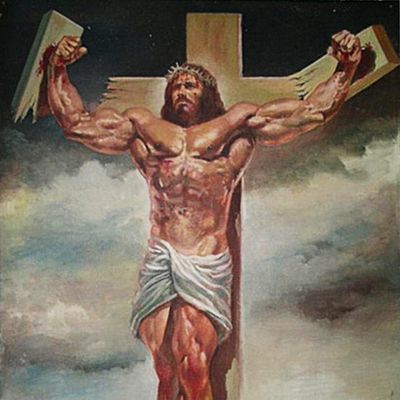
Observers from Southern Baptist spokesman Russell Moore to yours truly frequently argued during the late election campaign that white evangelical voters who viewed Donald Trump as the champion of, or even an participant in, their faith might be mistaking the mogul for somebody else. Aside from his rather casual attitude toward such tenets of Christian faith as the need for forgiveness of sins, Trump conspicuously embraced such heathenish concepts as worldly success as the measure of personal worth and vengeance as the appropriate response to wrongdoing.
But some data from the Public Religion Research Institute provides a different perspective on evangelical affection for Trump. The Atlantic’s Emma Green slices and dices it:
A new survey by the Public Religion Research Institute and The Atlantic found that 39 percent of self-identified evangelicals who are white feel that the quality of life in their local community is about to get better following the election. The poll is a follow-up to an even bigger survey taken about a month before the election; at that point, only 24 percent of white evangelicals who still live in their hometown said their communities had gotten better since they were young …
Two-thirds of white evangelicals said they’re “excited” or “satisfied” about the [election] outcome, compared to less than half of white mainline Protestants and white Catholics and less than one-third of people who are religiously unaffiliated.
So after decades of perceived decline, it seems America’s godliest communities are about to show dramatic improvements. If you wonder what that means, consider another finding:
In general, they are worried about America becoming weak: 64 percent of white evangelicals “completely” or “mostly” agreed that “society as a whole has become too soft and feminine,” compared to 48 percent of white mainline Protestants, 40 percent of Catholics, and 35 percent of people who are religiously unaffiliated.
This is a pretty telling data point, although it does not surprise those of us who have long feared conservative evangelicals have a tendency to confuse Christianity with the patriarchal heartland American culture of the 1950s.
It certainly does help explain why self-proclaimed followers of the Prince of Peace are attracted to a leader who supports torturing prisoners of war, killing noncombatant relatives of terrorism suspects, and expanding the use of racial and religious profiling. The ideas of loving one’s enemies or turning the other cheek are about as far away from Trump’s worldview as is possible. He would undoubtedly call these values “soft and feminine,” if not something more vulgar.
Maybe it’s not Trump who is the object of mistaken identity among white evangelicals. Maybe it’s Jesus, or at least the Jesus who called on his disciples to eschew worldly values and sacrifice all for love.






























